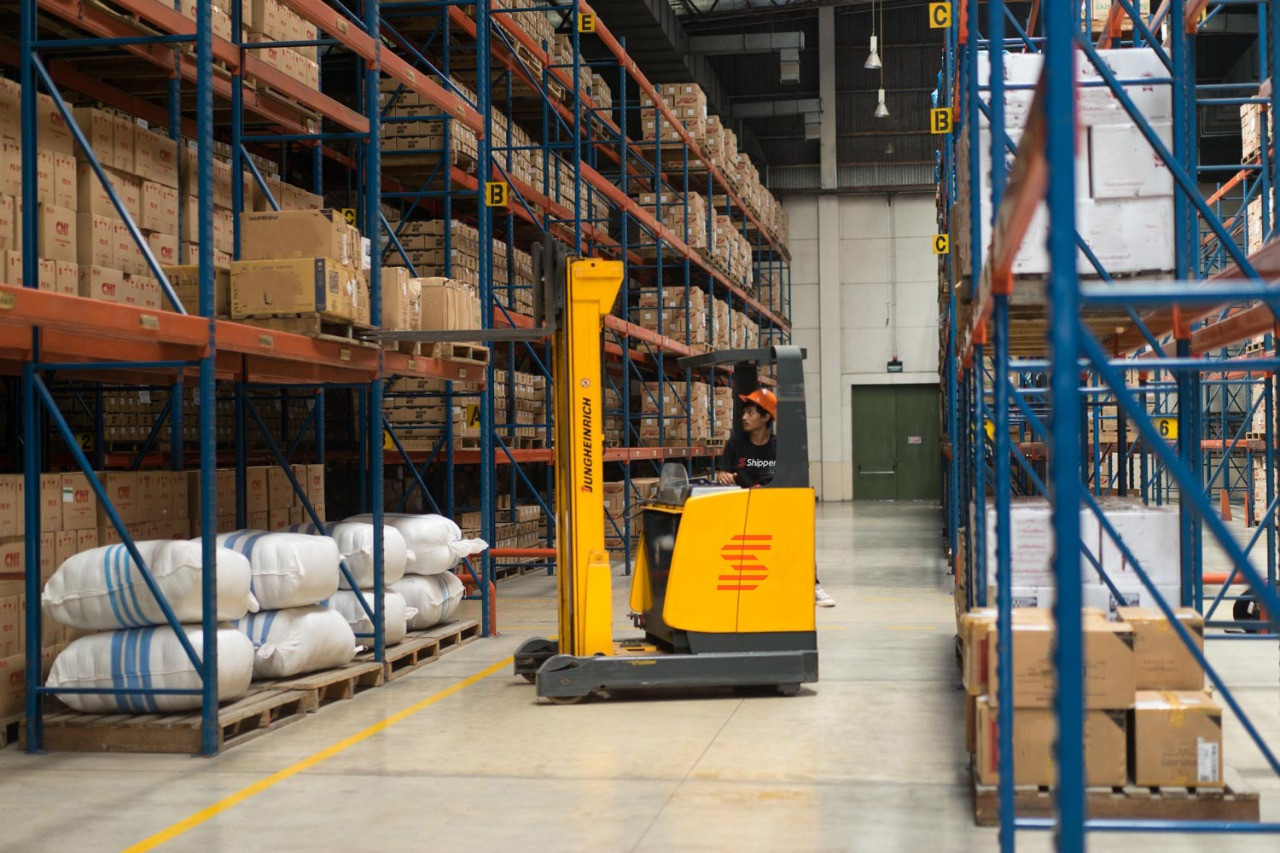Popular Reads
Top Results
Can't find what you're looking for?
View all search resultsPopular Reads
Top Results
Can't find what you're looking for?
View all search resultsIndonesian logistics firms ride e-commerce boom to survive pandemic
Courier start-ups received more than US$182 million in funding last year as an e-commerce boom boosted parts of the logistics sector.
Change text size
Gift Premium Articles
to Anyone
D
espite suffering a free fall in revenue in the early days of the pandemic, some logistics companies have managed to survive by taking advantage of a boom in online shopping brought about by government mobility restrictions.
The Indonesian Logistics Association (ALI) reported that logistics volumes were down 60 to 70 percent across the board from before the onset of COVID-19.
But logistics firms that catered to e-commerce fulfillment and shipping saw up to a 40 percent increase in business in 2020, and their growth continued into the first quarter of 2021.
“The situation is real, such as for fast moving consumer goods (FMCG) and pharmaceutical products, which have entered online channels,” ALI chairman Mahendra Riyanto told The Jakarta Post on Friday.
Logistics firms that focus on other industries, such as electronics and automotive equipment, however, have not seen a rebound. The sector overall remains in a contraction.
Read also: Logistics down by more than 50% amid pandemic
Indonesian e-commerce grew nearly 65 percent last year as 85 million people in the country began shopping online, according to management consulting firm Redseer. In response to the increase in demand, e-commerce players tapped into in-house delivery solutions.
Shopee, for example, launched Shopee Xpress in the third quarter of last year, offering cash back and free shipping for customers. Marketplace Lazada provides a shipping service called Lazada express, which is seeking to expand beyond Java.
The rapid adoption of online shopping has enticed investors to pour funds into logistics start-ups. Data from the past four years show that logistics start-ups have had the fifth-highest level of funding, after e-commerce firms, ride hailing services, on-demand services and financial technology firms.
There were at least eight rounds of funding for Indonesian logistics start-ups last year, totaling more than $182 million, according to Startup Report 2020 by DSInnovate.
Three additional funding rounds for logistics start-ups have been confirmed this year, namely for digital freight forwarders Andalin and SiCepat Ekspres in March and digital supply chain company Shipper.
Most of the funding has been given to early-stage firms, showing investors’ confidence that such companies will take off. New investments were also made in both third-party logistics (3PL) companies and fourth-party logistics (4PL) companies.
Companies in the 3PL segment allow businesses to outsource parts of their supply chain, such as warehousing, order fulfillment and delivery to end-consumers, while 4PL players manage all aspects of the supply chain with their own assets but can also aggregate 3PL players into their services.
Budi Handoko, cofounder and chief operating officer (COO) of Shipper, a 4PL firm, said there was plenty of room for technology-based logistics players to grow, especially because Indonesia was undergoing rapid digitalization.
The company announced on Thursday that it had received US$63 million in series B funding, led by Sequoia Capital India and DST Global Partners, which have also invested in Facebook, Twitter and Gojek.
“With these investors funding the sector, it shows that they believe logistics companies have a positive impact in Indonesia,” he said, adding that he expected Shipper to be profitable at an operational level by the end of 2020.
Paxel, a 3PL firm, announced that it had grown 2.4 times from 2019 to 2020 because of an increase in social commerce. The firm was planning to expand its market to tier two and tier three cities, starting with an expansion to Sumatra this year, said cofounder Zaldy Masita.
“We are going to start preparing for our next round of funding in the third quarter of this year for our expansion plan in 2022. We will also have a new service to allow an instant courier service that is supported by Gojek,” he said on Thursday.
Read also: Gojek, Paxel expand intercity delivery service to three more cities
J&T, another 3PL company, has reportedly received $2 billion in funding from Sequoia Capital China and Hillhouse Capital. It is also planning an initial public offering (IPO) in the United States, where it may raise more than $1 billion, according to Bloomberg.
The latest infusions of funding from Sequoia and Hillhouse make J&T Indonesia’s sixth “unicorn” company, valued at $7.8 billion, according to CB Insight.
Institute for Development of Economics and Finance (INDEF) economist Nailul Huda said that in the future, competition among logistics players would be based on digital solutions and wide network coverage.
“E-commerce companies, for example, can deploy their couriers as agents who pick up and deliver packages from end-to-end without the sender leaving their house,” he said, adding that legacy players that already had a number of workers should look into digitalization and should facilitate end-to-end deliveries.










